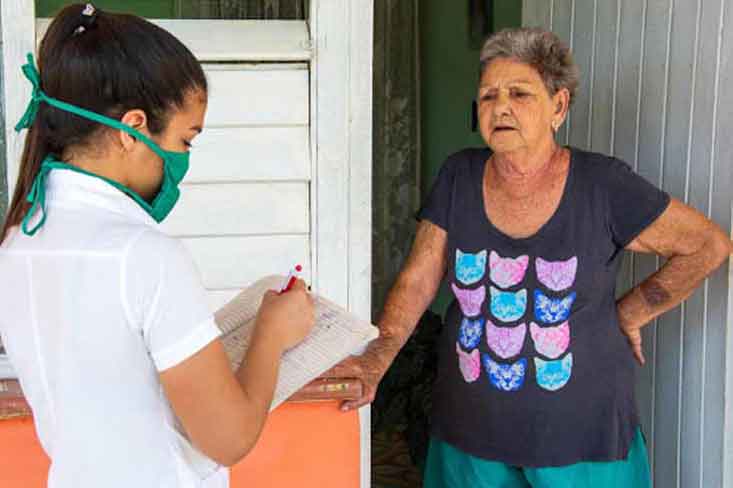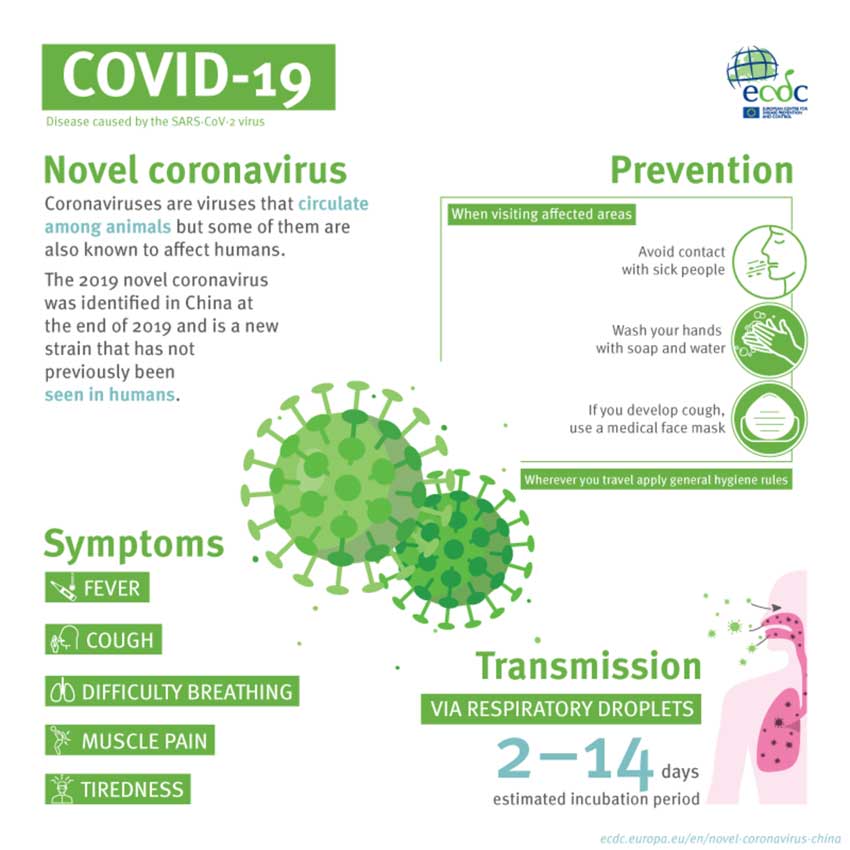
The Primary Health Care System (APS, in Spanish) plays an essential role in confronting the COVID-19. Increasingly intense actions are being carried out in the communities, at the latent risk of contagion spreading.
Las Tunas, Cuba.- They dedicate their efforts to three fundamental events in the 14 areas and the 550 family medical offices (CMF): active inquiry, adequate classification and isolation of suspicious patients and focus control; managing to reach more than 88 percent of the population in a single day in all locations.
In an interview with 26Digital, Laritza Aguilera Rodríguez, a specialist in Comprehensive General Medicine (MGI) who works in the APS section of the Provincial Directorate of Health, explains that prevention and promotion are vital to thwart the spread of the disease. Hence, a large number of workers and students from various medical specialties are now linked to active house-to-house research, with the aim of detecting all patients with acute respiratory infections (ARI).
“We had the first stage of preparation when there were still no positive cases, in which educational talks were held with the population and planned health hearings. Community leaders and mass organizations played a key role in these spaces. In the phase that we are now in, in order to avoid crowding, preventive work is face to face, says MGI specialist Iraide Ramírez Llanes, also an official from the APS provincial group.
FAST AND TIMELY MONITORING
 Maintaining stability in the epidemiological panorama is the priority of the Defense Council 310504, which covers the vicinity of the Ferrocarril, Casa Piedra and the Aeropuerto neighborhoods. More than 200 medical students have been assigned to support active investigations in the area, of around 4,475 homes.
Maintaining stability in the epidemiological panorama is the priority of the Defense Council 310504, which covers the vicinity of the Ferrocarril, Casa Piedra and the Aeropuerto neighborhoods. More than 200 medical students have been assigned to support active investigations in the area, of around 4,475 homes.
Dr. Yanet Puig, at the head of Medical Office 19, one of the nine framed in the Defense Council, told 26Digital that her premise is to detect people suffering from acute respiratory infections in the community and guarantee them timely treatment.
“We have received additional support from future doctors to maintain a constant check-up of the 1,480 inhabitants of our area, in addition to other health personnel. We intend to visit 95 to 100 percent of the homes each day, and so far we are succeeding. Currently, we detect fewer respiratory manifestations, which is due to the fact that the perception of risk increases, inhabitants take better care of their health and, being isolated, they do not reinfect themselves with other viruses.”
Ramírez Llanes considers that “the most important battle is won in the inquiry. Each team has a fixed universe to attend because experience has shown us that it is more effective, the population becomes more confident with the researcher and tells of any discomfort. They are duly protected and have no direct contact with the inhabitants. From about a meter and a half away they ask their questions and when a house is closed they must return a second time in the afternoon.
“Suspicious or presumptive cases of ARI are immediately corroborated by the basic health team of the office, who is ultimately responsible for all the actions that are carried out in the area. ARIs increase at this stage of the year, but it is easy to opt for them by the doctor, who is an important filter. If they have had links with COVID-19 suspects, with travelers from abroad or contacts of both, they have a confirmed epidemiological risk and are processed by the specialized technical team in the health area.”
The multidisciplinary team is made up of a clinician, an epidemiologist, an obstetrician and a pediatrician, who decide the behavior to follow if it is a case of contact, suspicion or just common flu. Another way to reach that instance is the specialized ARI consultations created in the polyclinics. There, patients who arrive at the facility are treated immediately after their reception by the classification nurse.
“These institutions also have a rapid response team, equipped to carry out disinfection and focus control at the place of residence of suspected cases. All this has to proceed and takes place before the first four hours of the suspicion being declared," Aguilera Rodríguez points out.
TO PREVENT CONTINUES TO BE THE SMARTEST
To date, medical offices and polyclinics provide their usual services. However, measures have been taken in order to avoid the unnecessary influx of people, such as the extension by six months of diets and cards that expire in April. Likewise, at the beginning of the service, small educational talks are given to those present in the waiting room and are repeated later, at other times of the day.
It is important to highlight the joint work with the Defense Council. The family doctor offers a dispensation in which informs vulnerable patients, the elderly living alone; and the community working group gives them prioritized care.
The constant checkup is an essential action in the control of the situation regarding the new SARS-CoV-2 coronavirus. It is the best way to identify in a timely manner those who may suffer symptoms associated with the disease and act accordingly.




